Climate change, inequality, corruption – these are just some of the reasons why demonstrators are taking to streets across the world
Tom Westbrook
1/11/2020
Umm Mahdi, 66, an Iraqi demonstrator, during the ongoing anti-government protests in Baghdad, Iraq
“I come to protest for rights and against illegitimacy. The government is illegitimate, there are no jobs, no housing, no services and the protesters have a good cause. I should be with them because I am like a mother to them,” Mahdi said. “If the government provided jobs or housing or services to citizens the youth would not be protesting and sacrificing their lives. My message to the protesters is: I am with you until the last day of my life, I support you – keep your peaceful protests going until you get your rights,” she continued. “I will not back down from participating in protests until our youth get all their rights from the corrupt and unjust. Any people who protest do so because they have been oppressed.”
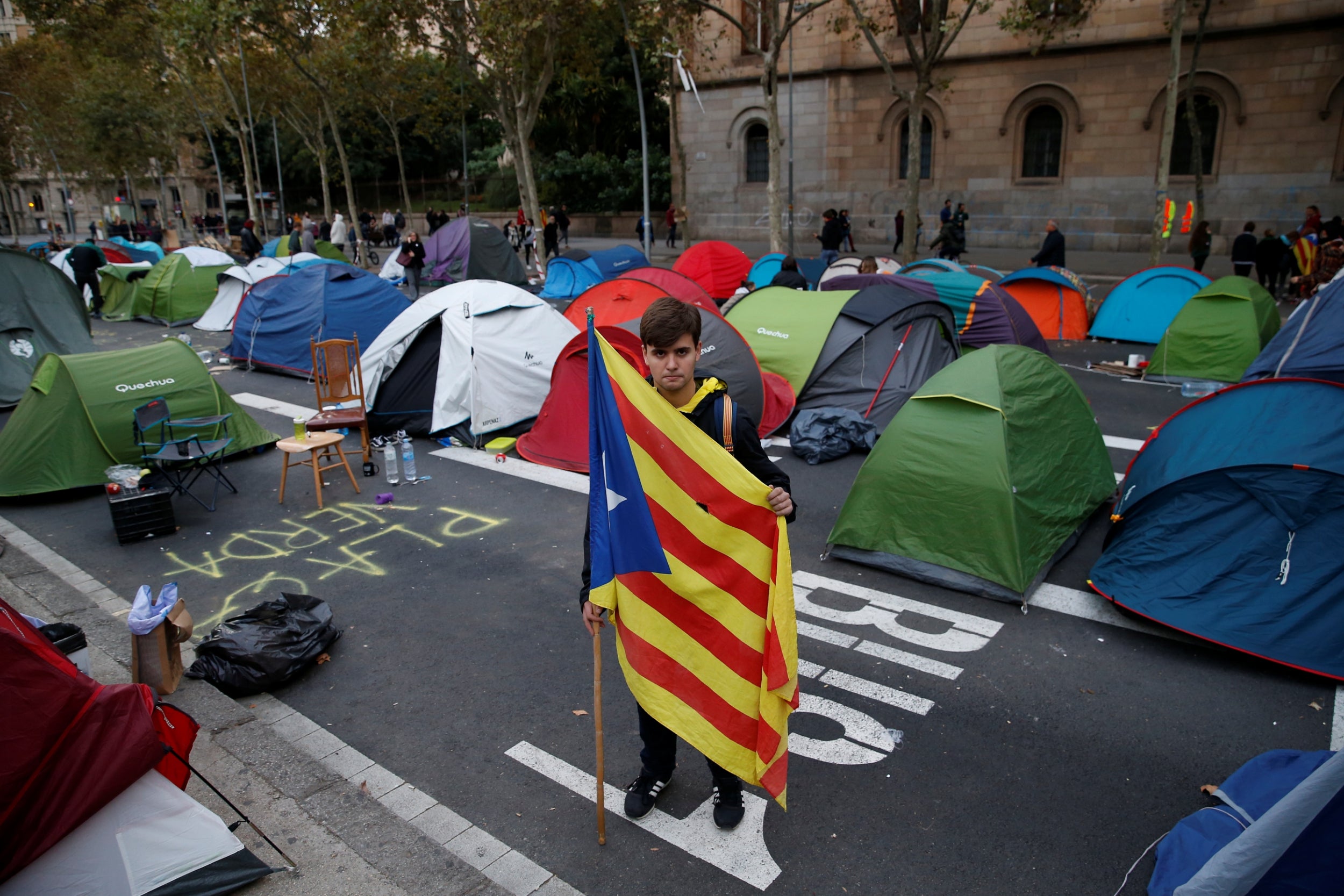
Axel Buxade, 18, a student, holds a Catalan flag during a protest at University Square in Barcelona, Spain
“We’re here, mainly young people, outraged by the sentences and the inability of politicians to talk,” said Buxade. Referring to Hong Kong, he said: “There have been acts of mutual support, if they reach their goal we'll be very happy.”
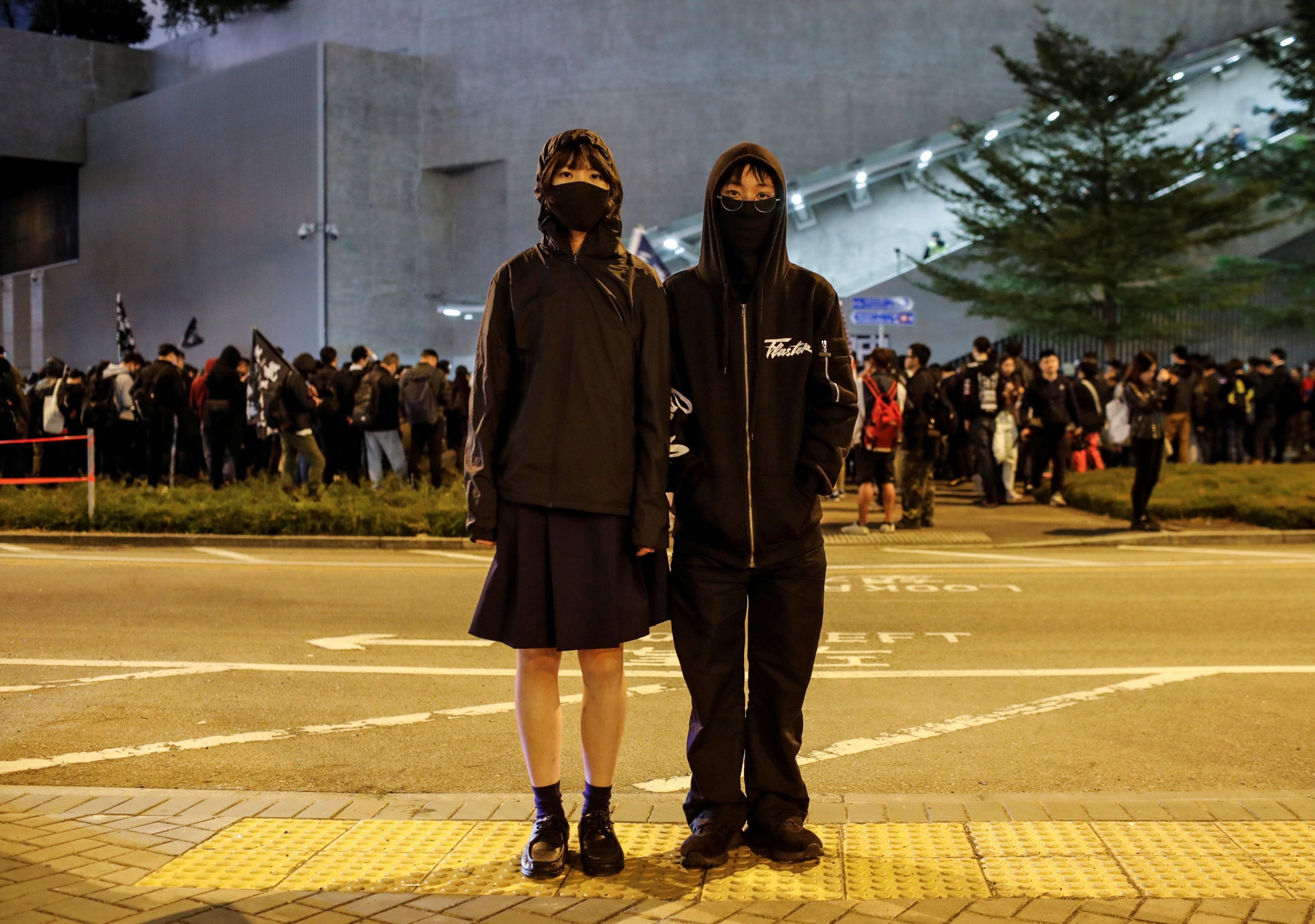
A protester nicknamed Liberty Girl God and her boyfriend nicknamed Little Brother, both 15, during a protest in front of Lennon Wall in Hong Kong, China
“We want the government to finally respond to our demands and to make changes quickly,” said Liberty Girl God. “In my opinion (protesters in other countries) have the same demands as us. This may be a hard way to achieve our wish but I believe we will win.”
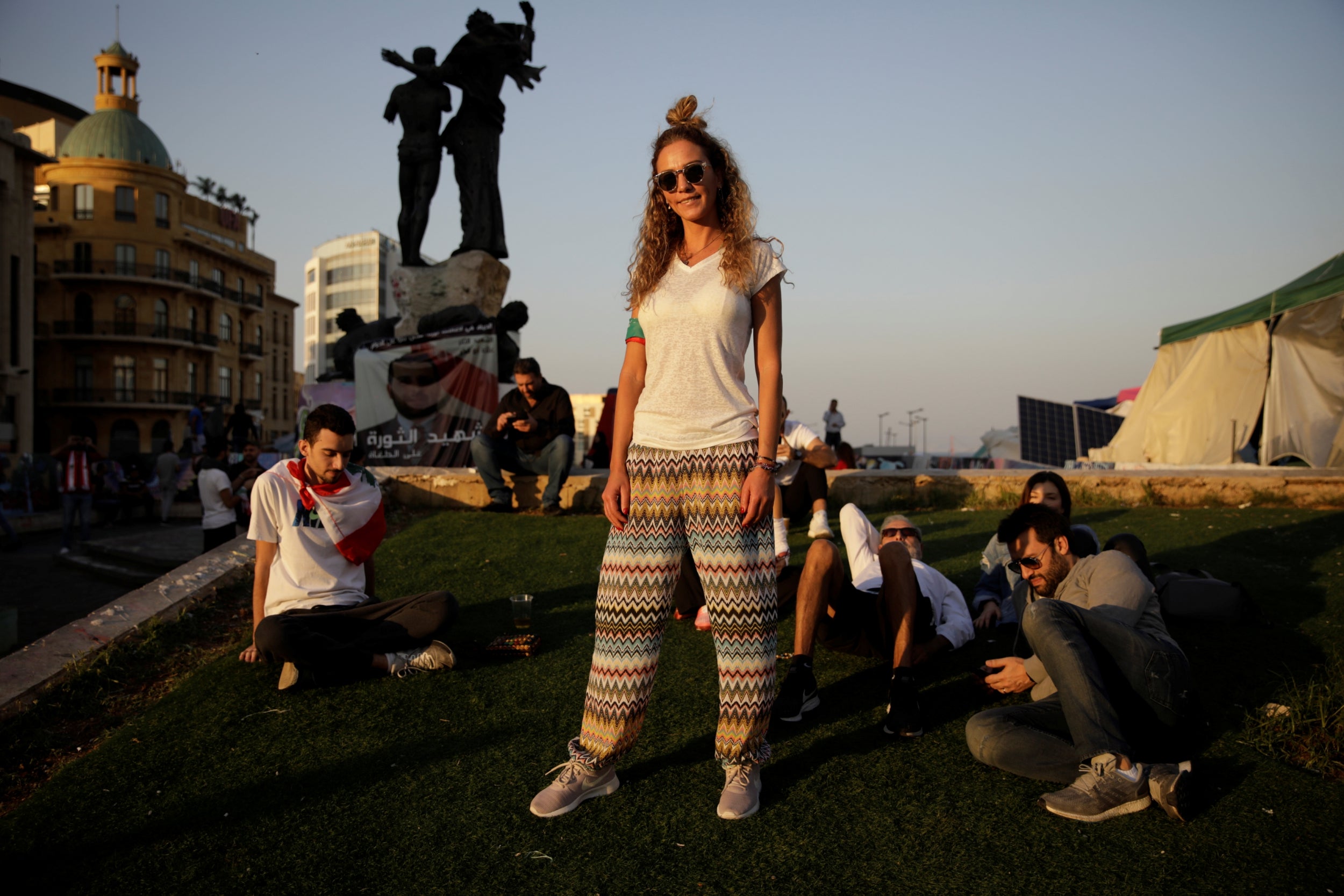
Hiba Ghosn, 36, who works in the fashion industry, poses as her friends sit in the afternoon sun on Martyrs’ square, as people gather for a demonstration during ongoing anti-government protests in Beirut, Lebanon
“They are thieves, every single one of them. They’ve been robbing us for 30 years,” she said. “The new generation should come in and politicians that are more like us, and see what we see. I think it’s gonna take a very long time to reach there ... but we will. I think we’ve woken up the dragon. (Globally) people have had enough. I think they are all asking for those basic rights.”
Protests swept the globe in 2019, with people engaging in rallies from Catalonia to Colombia, and Haiti to Hong Kong – and continuing in the same vein into 2020 so far.
Each movement had its own trigger. Some were fed with corruption and entrenched elites. Others wanted democracy or independence.
Some called for reforms and others opposed them. Worries over climate change and environmental destruction also galvanised activists the world over.
The frustrations were sometimes similar, from inequality to powerlessness.
And often the protests turned violent, with security forces killing several hundred people in Iran, Iraq and elsewhere. Volleys of tear gas became a familiar sight in traditionally peaceful and stable Hong Kong.
Each movement had its own trigger. Some were fed with corruption and entrenched elites. Others wanted democracy or independence.
Some called for reforms and others opposed them. Worries over climate change and environmental destruction also galvanised activists the world over.
The frustrations were sometimes similar, from inequality to powerlessness.
And often the protests turned violent, with security forces killing several hundred people in Iran, Iraq and elsewhere. Volleys of tear gas became a familiar sight in traditionally peaceful and stable Hong Kong.
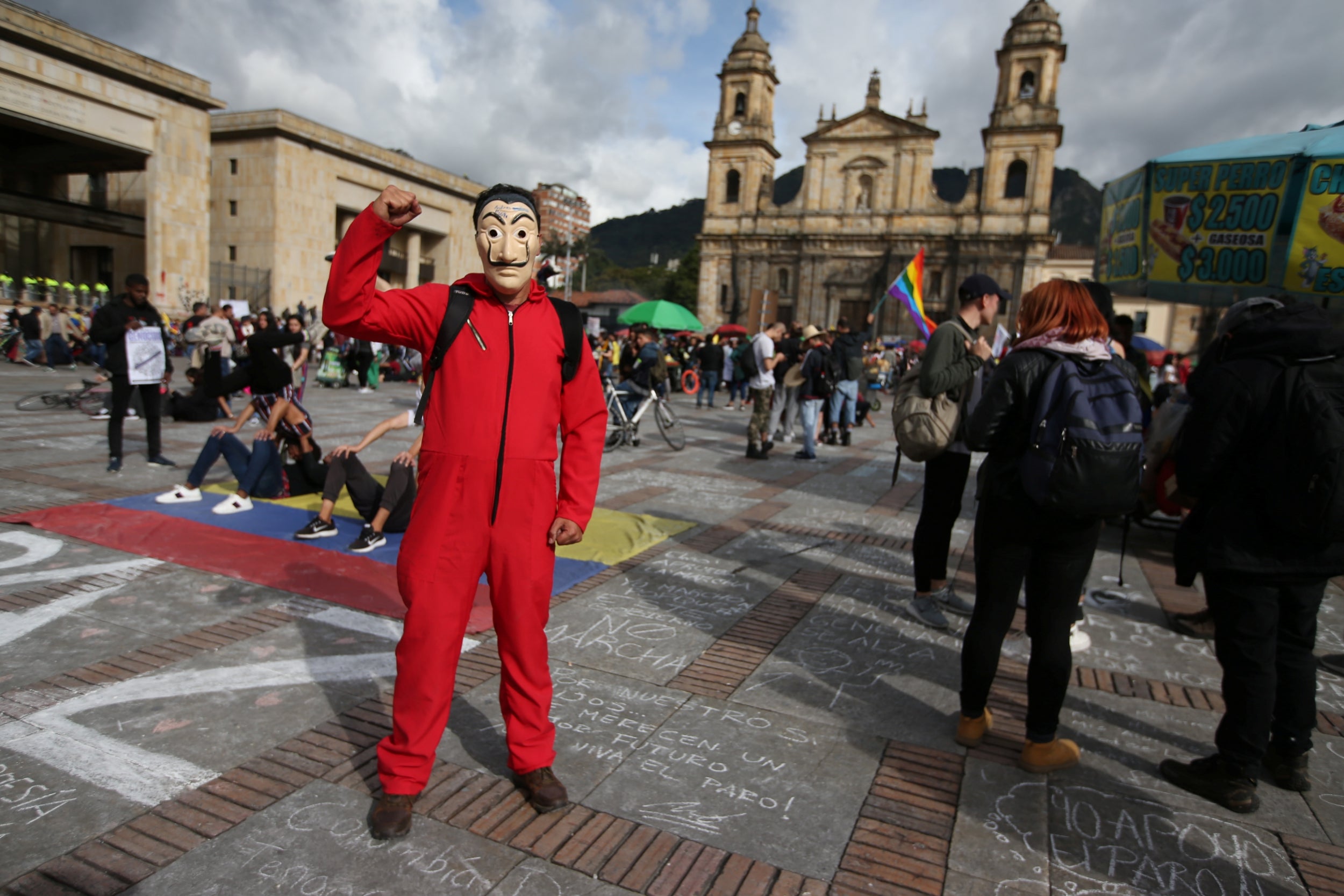
Teacher Andres Felipe Vargas, 52, at a protest during a national strike in Bogota, Colombia
“The government that is currently in Colombia is an extreme right-wing government that wants to take away more and more of our rights... it is a government that only wants to encourage inequality, Colombia is the third most unequal country in the world,” Vargas said. “Throughout history it has been seen that things don't just happen, things change with revolutions ... with the French revolution, with the industrial revolution. Right now we are in a stage of awakening and we have to take advantage of that.”
Yet amid the gunfire and clouds of teargas, there was a feeling of solidarity as demonstrators drew on each other’s determination and strength.
“Right now we are in a stage of awakening and we have to take advantage of that,” said Andres Felipe Vargas, a professor joining an anti-government strike in Bogota, Colombia.
“What is happening in our country, and these injustices that generate inequities, are the same injustices that are destroying the planet,” he said.
Reuters photographers in more than a dozen countries documented the depth of feeling that linked disparate movements.
“Right now we are in a stage of awakening and we have to take advantage of that,” said Andres Felipe Vargas, a professor joining an anti-government strike in Bogota, Colombia.
“What is happening in our country, and these injustices that generate inequities, are the same injustices that are destroying the planet,” he said.
Reuters photographers in more than a dozen countries documented the depth of feeling that linked disparate movements.
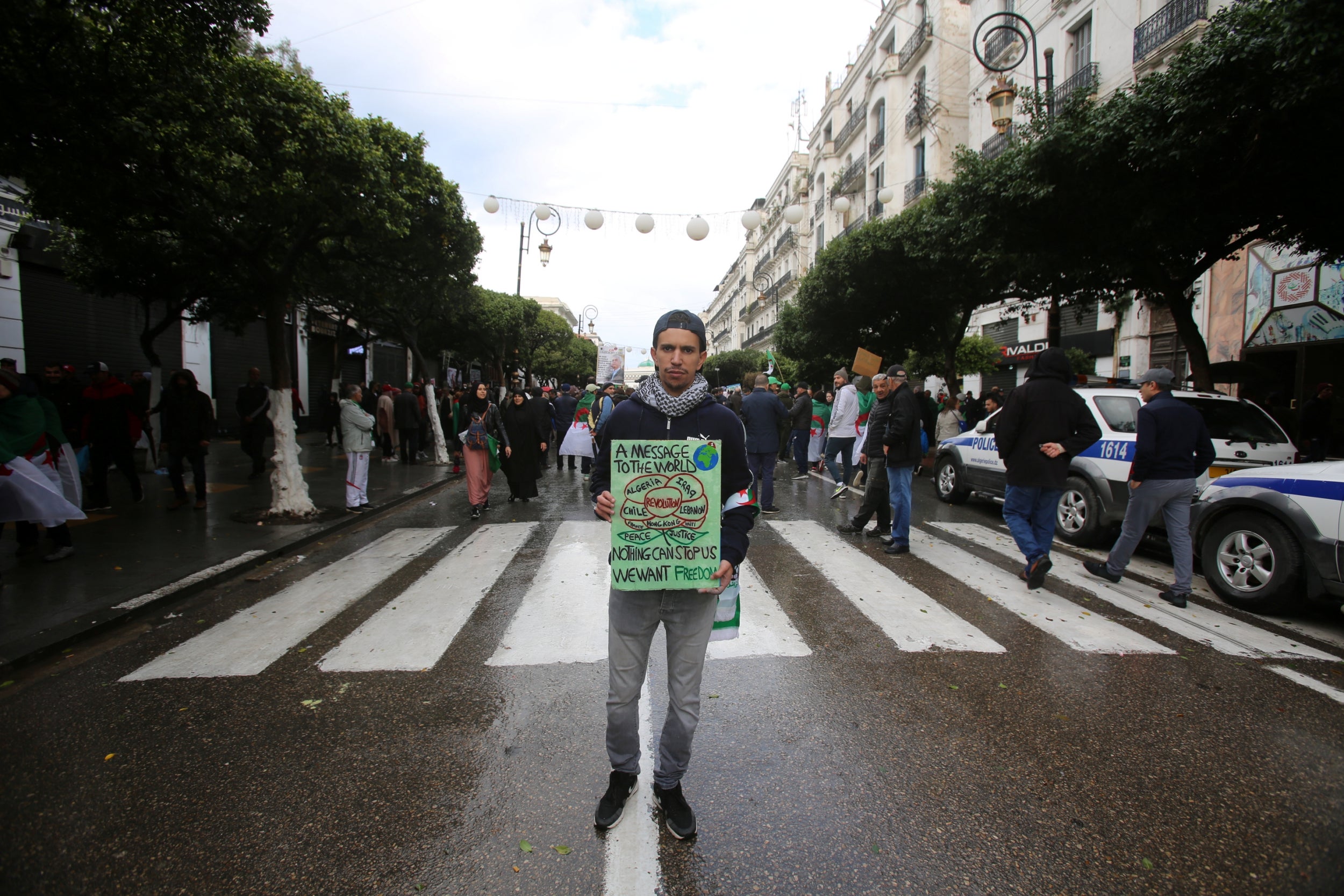
Amiri Yacine, 26, a student, poses for a photograph during a protest rejecting the December presidential election and against the country's ruling elite in Algiers, Algeria
“I am protesting against injustice and dictatorship,” said Amiri Yacine, 26. “People are protesting around the world. In Lebanon, Iraq Chile, France, Hong Kong and Haiti, because of injustice and corruption.” Yacine, who has joined rolling demonstrations since February in opposition to the shadowy elite that has controlled Algeria since independence in 1962, feels his demands are universal. “We want to build a new Algeria ... we want free media and a total respect of human rights. Also, we want jobs and infrastructure,” Yacine said. “My message to protesters is just be peaceful – be wise and keep calm. Fight the system with good ideas, because they don’t have ideas.”
Yacine, who has joined rolling demonstrations since February in opposition to the shadowy elite that has controlled Algeria since independence in 1962, likewise feels his demands are universal.
“We want to build a new Algeria ... we want free media and a total respect of human rights. Also, we want jobs and infrastructure,” Yacine said.
“My message to protesters is just be peaceful – be wise and keep calm. Fight the system with good ideas, because they don’t have ideas.”
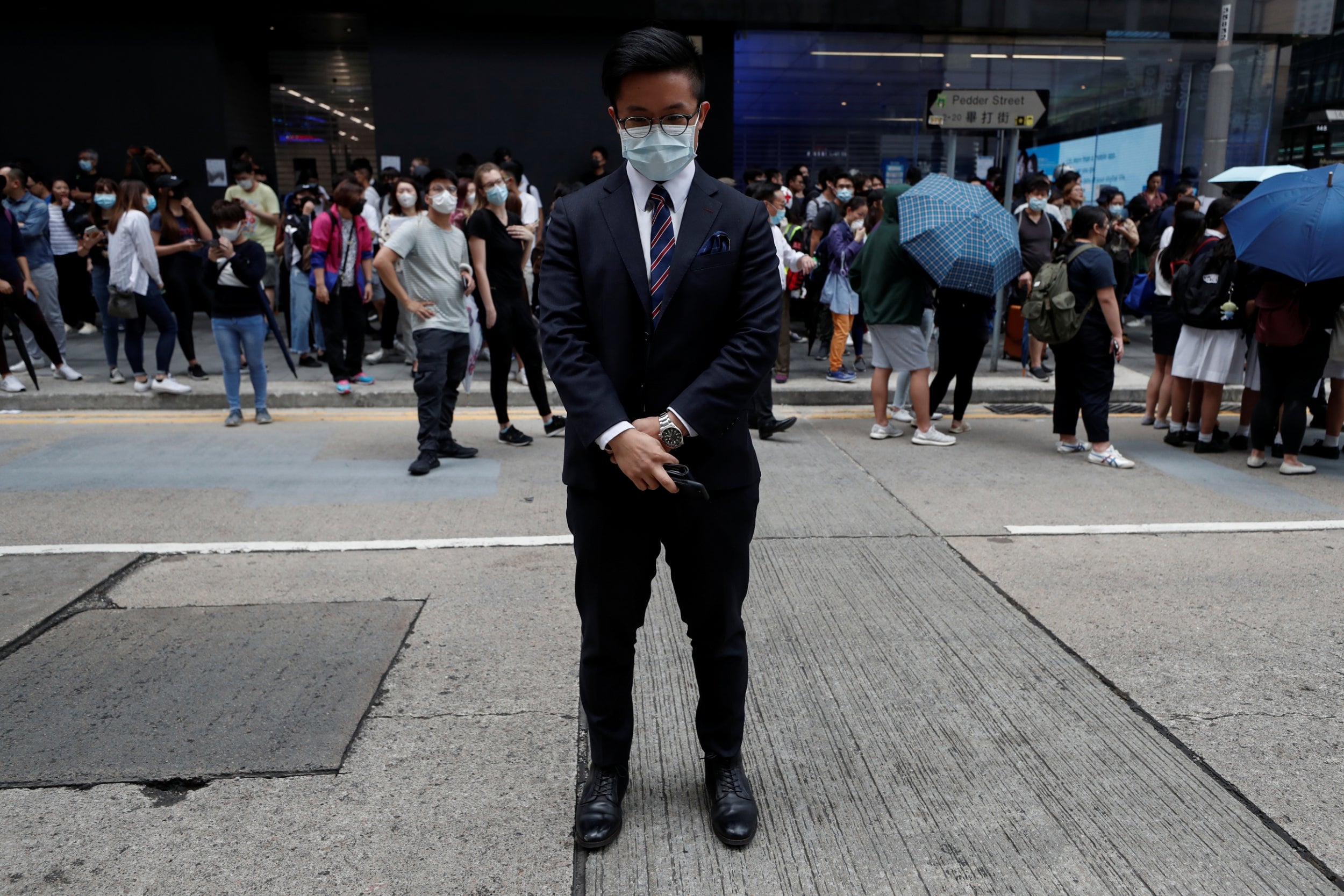
Jasper, 27, who works in a retail bank, during a demonstration in Hong Kong
“This is a universal demand for democracy and fairness,” said Jasper, who joined a downtown protest at lunchtime. Like many protesters, he declined to give his surname and wore a surgical mask to conceal his identity. “Every country in the world faces the same situation. This will not be an easy road, but we all know we are doing the right thing.”
Summer has turned to winter in Hong Kong, where demonstrations against a controversial extradition bill turned into a push for greater democracy.
The Beijing-backed government has refused to yield, while the protesters have gathered in vast numbers, turning shopping districts into a sea of black-clad people.
“This is a universal demand for democracy and fairness,” said Jasper, a 27-year-old bank worker, who joined a downtown protest at lunchtime. He cut a suave figure, in a sharp suit, red-and-blue striped tie and pocket square, standing on Pedder Street in the city’s central district.
Like many protesters, he declined to give his surname and wore a surgical mask to conceal his identity.
“Every country in the world faces the same situation. This will not be an easy road, but we all know we are doing the right thing.”
The movement has invited comparisons with protesters pushing for independence for the Spanish region of Catalonia, where the sentencing of separatist leaders to long prison terms led to renewed and sometimes violent protests.
“We’re here, mainly young people, outraged by the sentences and the inability of politicians to talk,” said Barcelona student Axel Buxade, 18, holding a Catalan flag at a demonstrators’ camp on a city street.
Referring to Hong Kong, he added: “There have been acts of mutual support, if they reach their goal we’ll be very happy.”
The Beijing-backed government has refused to yield, while the protesters have gathered in vast numbers, turning shopping districts into a sea of black-clad people.
“This is a universal demand for democracy and fairness,” said Jasper, a 27-year-old bank worker, who joined a downtown protest at lunchtime. He cut a suave figure, in a sharp suit, red-and-blue striped tie and pocket square, standing on Pedder Street in the city’s central district.
Like many protesters, he declined to give his surname and wore a surgical mask to conceal his identity.
“Every country in the world faces the same situation. This will not be an easy road, but we all know we are doing the right thing.”
The movement has invited comparisons with protesters pushing for independence for the Spanish region of Catalonia, where the sentencing of separatist leaders to long prison terms led to renewed and sometimes violent protests.

Amiri Yacine, 26, a student, poses for a photograph during a protest rejecting the December presidential election and against the country's ruling elite in Algiers, Algeria
“I am protesting against injustice and dictatorship,” said Amiri Yacine, 26. “People are protesting around the world. In Lebanon, Iraq Chile, France, Hong Kong and Haiti, because of injustice and corruption.” Yacine, who has joined rolling demonstrations since February in opposition to the shadowy elite that has controlled Algeria since independence in 1962, feels his demands are universal. “We want to build a new Algeria ... we want free media and a total respect of human rights. Also, we want jobs and infrastructure,” Yacine said. “My message to protesters is just be peaceful – be wise and keep calm. Fight the system with good ideas, because they don’t have ideas.”
Referring to Hong Kong, he added: “There have been acts of mutual support, if they reach their goal we’ll be very happy.”
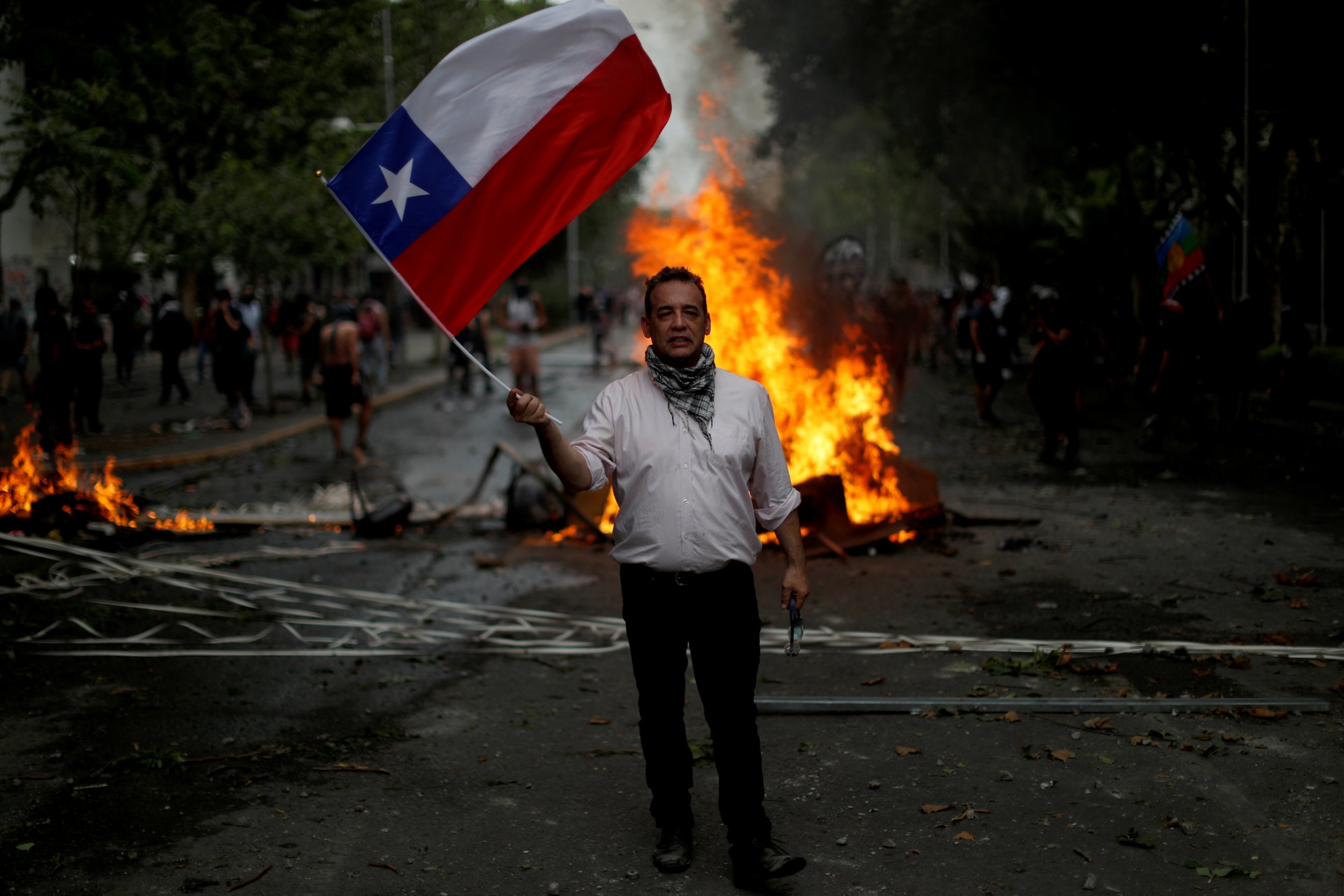
Alex Munoz Fuentes, 47, an accountant, holds a Chilean flag in Santiago, Chile
“People in the world are tired of injustice,” said Fuentes. “I don't want anything given for free. But I know that in Chile the institutions, the law and the constitution are made to abuse the working classes. I want a new deal. Hong Kong is similar, the authorities are not thinking about people’s wellbeing... I have a fraternal hug for them, and all my solidarity from Chile. Please don’t give up.”
Economics, and in particular inequality, has also proved potent fuel for protests in Lebanon, Chile, Ecuador and Iraq.
“People in the world are tired of injustice,” said Chilean Alex Munoz Fuentes, a 47-year-old accountant, standing before a burning barricade on a Santiago street.
“I don’t want anything given for free,” he said, the national flag in one hand and a pair of goggles to protect him from teargas in the other.
“But I know that in Chile, the institutions, the law and the constitution are made to abuse the working classes. I want a new deal.
“Hong Kong is similar, the authorities are not thinking about people’s wellbeing. I have a fraternal hug for them, and all my solidarity from Chile. Please don’t give up.”
Reuters
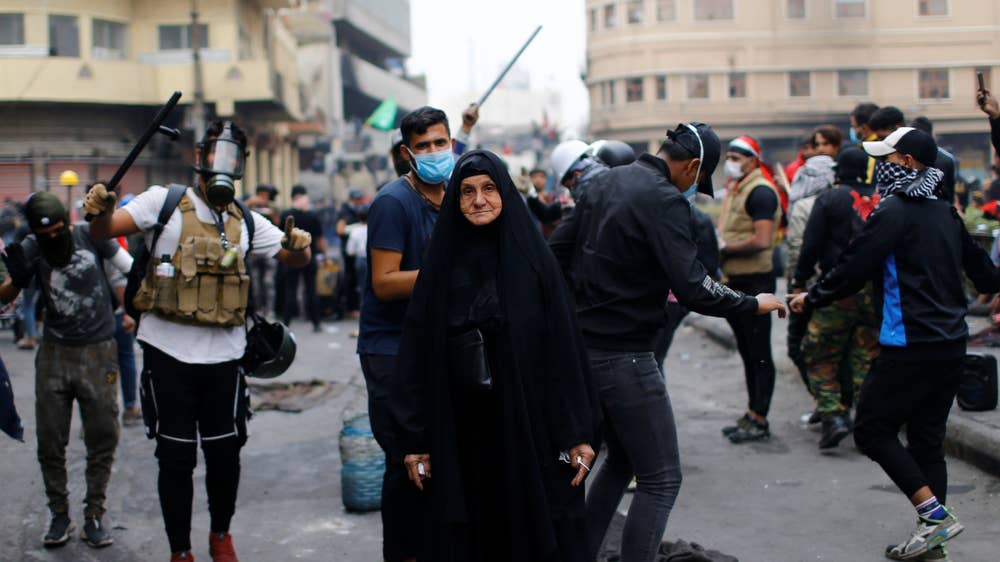
No comments:
Post a Comment